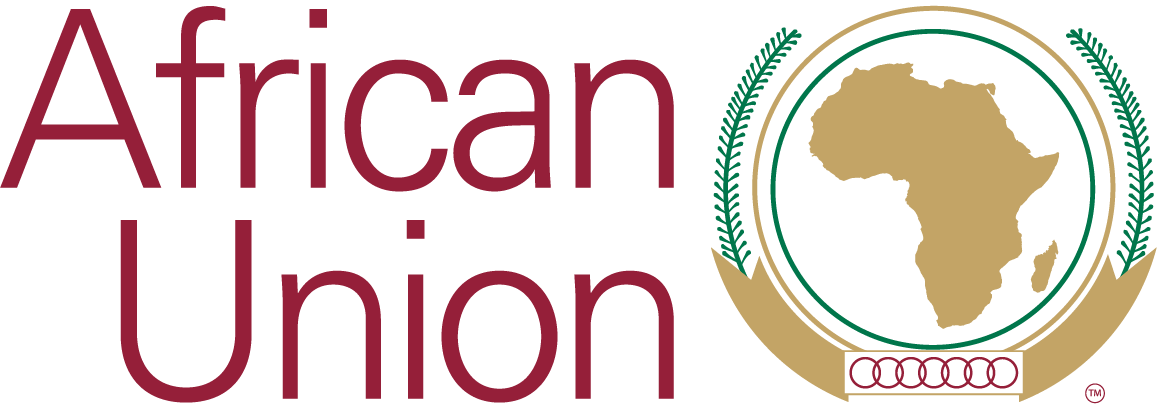Annual report of the Pan-African Parliament, March 2004 to March 2005
Executive summary
The Pan-African Parliament is charged with the task of facilitating the effective implementation of the policies and objectives of the OAU/AEC and the African Union. In addition to promoting the accepted principles of good governance, human rights, solidarity, peace and development in Africa, it is also mandated to familiarize the Peoples of Africa with the policies and objectives aimed at integrating the African continent within the framework of the African Union.The Pan African Parliament was inaugurated almost one year ago. The Inaugural Session of the Pan-African Parliament was held on 18th March, 2004 in Addis Ababa, Ethiopia. Two hundred and two (202) Parliamentarians elected or nominated from forty-one (41) National Parliaments from Member States of the African Union that ratified the Protocol to the Treaty Establishing the African Economic Community relating to the Pan-African Parliament participated during the occasion, whereby the Hon. Amb. Gertrude I. Mongella, MP from the United of Republic of Tanzania (Eastern Region), was elected President of the Pan-African Parliament.This led to the sitting of the First Ordinary Session of the Parliament where the four Vice-Presidents, namely; Prof Dr. F. Jose Dias Van-Du Nem (Angola), 1st Vice-President (Southern Region); Prof Dr. Mohammed Lutfi Farahat, (Libya), 2nd Vice-President (Northern); Mrs. Loum N. Ne’loumsei Elise (Tchad), 3rd Vice-President (Central Region); Mr. Jerome Sacca Kina Guezere (Benin), 4th Vice-President (Western Region), were elected. Together with the President, they formed the Bureau of the Pan-African Parliament. The Parliament has since then held three (3) Ordinary Sessions and six (6) Bureau Meetings.Within the scope of its advisory, consultative and oversight roles, the Parliament has to date passed fourteen (14) Resolutions and thirteen (13) Recommendations. They include, notably, those relating to a Parliamentary Mission to Darfur, which was conducted last year.In order to promote the vision, mission, and objectives of the African Union, in line with its core objectives, the Pan African Parliament initially invited a number of speakers from the AU and NEPAD to orient the Members.The consultative and oversight roles required that the Bureau build relationships with institutions and persons to add up to the impetus of the Parliament’s objectives. Consequently, the Bureau and the Committees undertook various visits to establish relationships in Africa and beyond. The Parliament also received individual dignitaries and institutional representatives during its Ordinary Sessions.Furthermore, with its Rules of Procedure, and to utilise the expertise within its Members, the Parliament established ten (10) Permanent Committees, each of which elected a Chairperson, Deputy-Chairperson and Rapportuer. These Committees form a legitimate internal organ of the Parliament and have already formulated and committed themselves to their Work Plans.Since Parliament’s success cannot be separated from its ability to communicate its objectives and initiatives with the peoples of Africa and other stakeholders, the Parliament has launched a website as a first multi-media communication strategy designed to ensure that the Parliament reaches global populations.The year under review had a number of challenges. The most notable one was the Parliament’s budgetary and financial constraints. Since from its inception the Parliament has been singularly funded by the African Union, reduced budgets and delayed disbursements were experienced. The perseverance by it amid such challenges, however, led to new ideas, such as the creation of a Trust Fund that will enable Parliament to bridge the gaps between planning and implementation.This approach will open up the potential of a new Parliament which is eager to effectively and productively fulfil its mandate in partnership with as many supporters as possible.This Report gives a full account of the activities carried out by the PanAfrican Parliament (PAP) since its inauguration in Addis Ababa on the 18th of March 2004 up to March, 2005. It further gives an in-depth account of the operations, challenges and achievements of the Parliament over the past 2004/2005 year.As the Parliament forges ahead, it is giving priority to the ratification of the protocol by the remaining African Union Member States so that it begins to carry out the full weight of a unanimous mandate in effecting its role. It acknowledges the need to build capacity, source out for partners, examine priority areas, and strengthen its oversight and advisory roles. It aims at moulding itself into a world-class institution capable of effectively implementing its objectives and those of the African Union, for our benefit as Africans now, and in the future.The Report is organised as follows:Section 1Introduces the background to the establishment of the PAP within the AU framework, its objectives and its relations with other AU organs.Section 2Lays down the first activities carried out by the Bureau after its Inaugural Session; the Host Country Agreement and the process towards moving to the Host Country.Section 3Presents the activities performed by PAP in the Host Country since September, 2004, in which the Second and Third Ordinary Sessions were held.Section 4Chronicles the achievements of the PAP in its first year of operation.Section 5Underscores the challenges which the organisation has faced thus far.Section 6Presents a way forward with regard to the challenges and achievements.Section 7Concludes on the Report.1 Establishing the Pan-African Parliament
 Source: Compiled from the Constitutive Act of the African Union and its Protocol on Amendments.
Source: Compiled from the Constitutive Act of the African Union and its Protocol on Amendments.2 Activities of the Pan-African Parliament Bureau
3 Activities in the permanent seat (South Africa)
4 Achievements
 Source: PAP Human Resource Requirements and Organogram
Source: PAP Human Resource Requirements and Organogram5 Challenges
 Source: The Pan African ParliamentThis budget, though not adequate and not fully disbursed, laid a solid foundation for PAP’s activities leading to 2006. To some extent, PAP activities have been curtailed, which in itself justifies the growth intensive tone of the projected budget for 2006.
Source: The Pan African ParliamentThis budget, though not adequate and not fully disbursed, laid a solid foundation for PAP’s activities leading to 2006. To some extent, PAP activities have been curtailed, which in itself justifies the growth intensive tone of the projected budget for 2006.